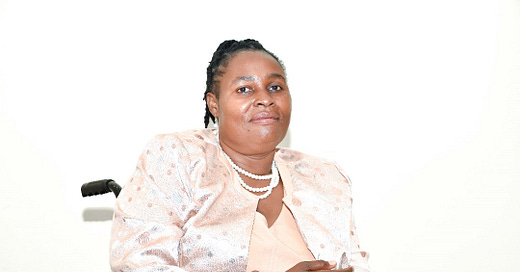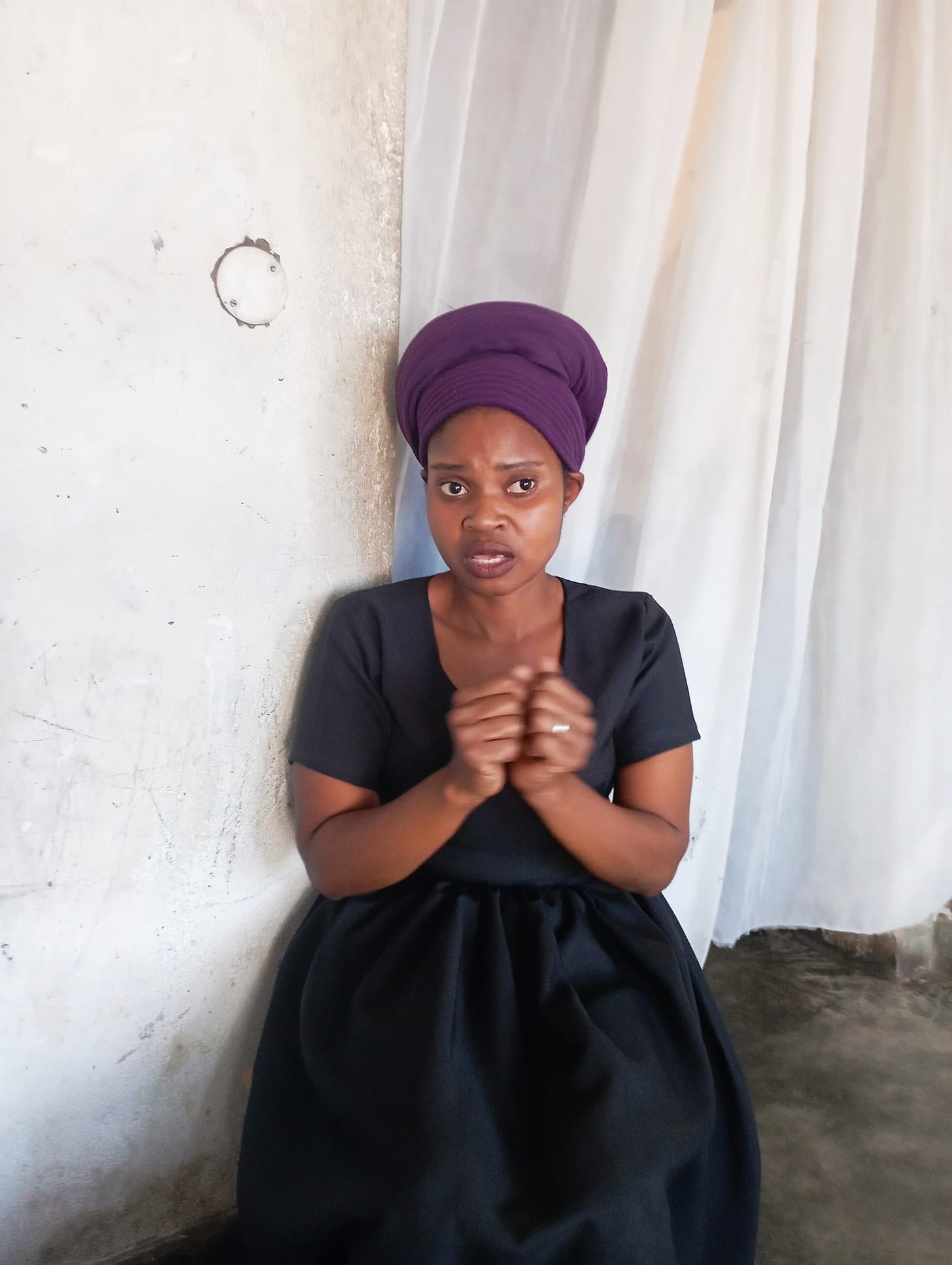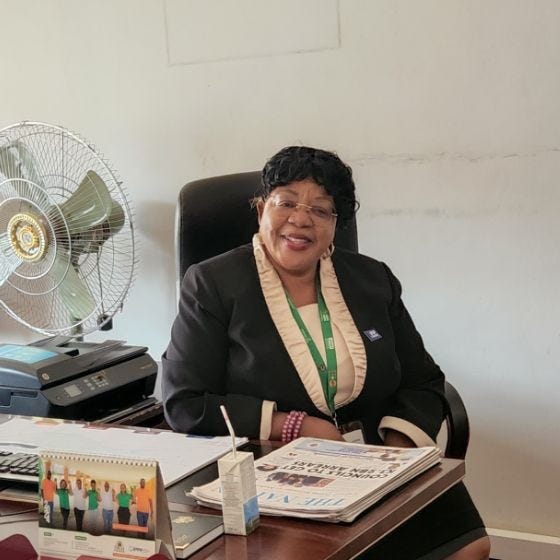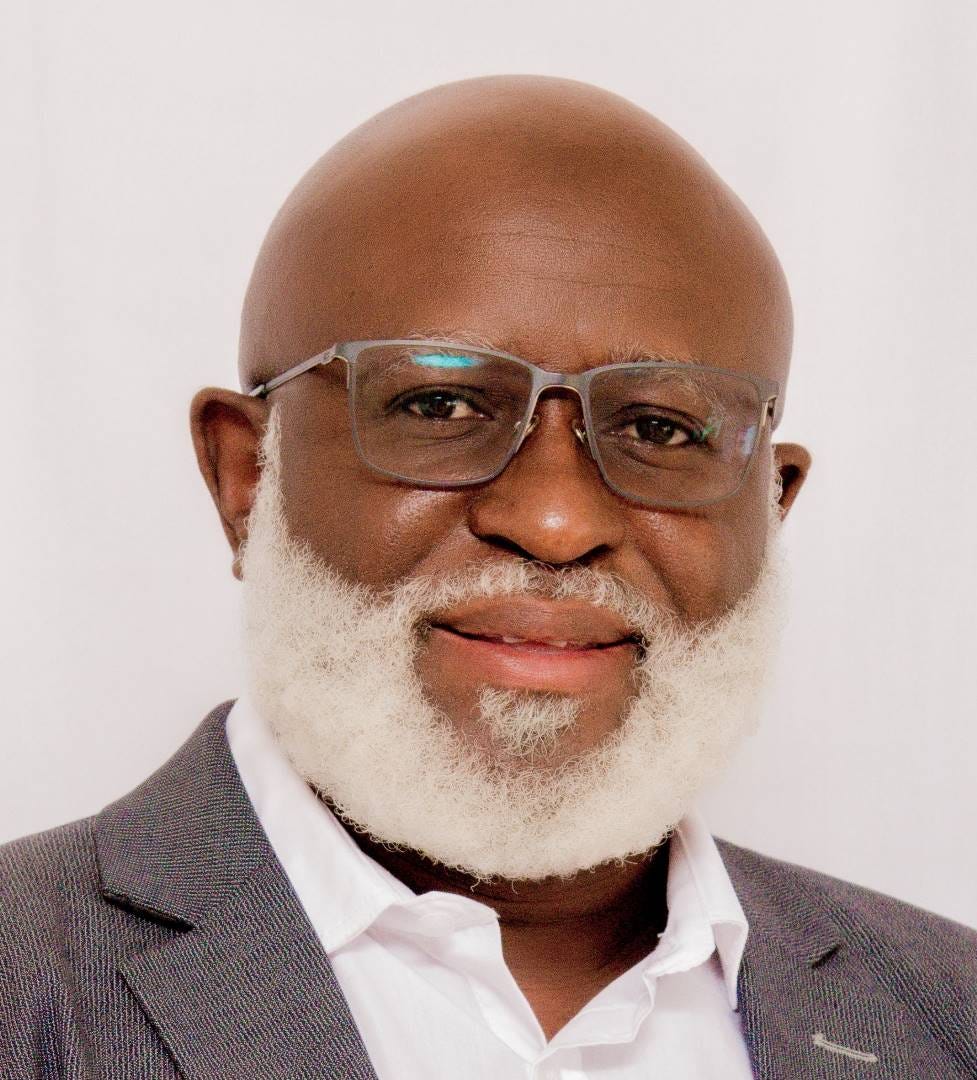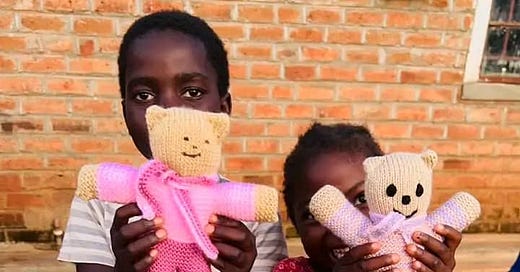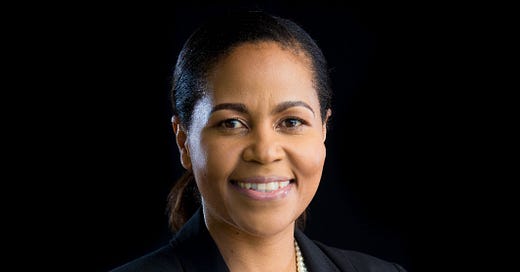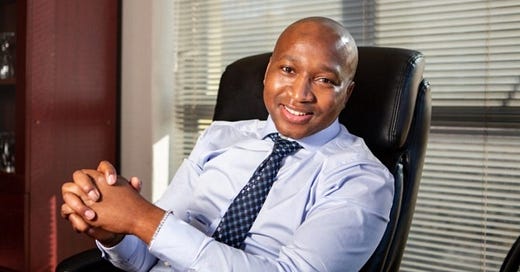
Pregnant and disabled: Women grappling for dignified maternal care
Malawi’s policies have not been in accordance with the international agreements she is party to, such as the Convention of the Rights of Persons with Disabilities (UN CRPD).
BLANTYRE, Malawi-Twelve out of every 100 Malawians aged five and older have a disability, according to Malawi's 2018 Population and Housing Census. Although Malawi has several policies and an Act stipulating the need to respect disability rights, including in health service provision, pregnant women with disabilities face a myriad of challenges, as Josephine Chinele and Chisomo Ngulube explore.
When Lynes Manduwa miscarried, nurses in the gynaecology ward at Queen Elizabeth Central Hospital (QECH) ganged up and confronted the husband.
“They confronted him for impregnating me [a woman with disabilities] and blamed him for the miscarriage which was actually due to the usual biological reasons, which even women without disabilities would also experience,” she recalls.
“I’m certain they do this and other awful things to women with disabilities seeking maternal health care. I lost a colleague who tried to deliver by herself at home because she was mistreated in her previous hospital visit,” claims 58-year-old Manduwa, who has a mobility impairment and uses clutches and a wheelchair interchangeably according to need.
Her suspicion derives from what she experienced at antenatal clinics during all her four pregnancies (including the miscarriage).
“I was worried about the reception at every clinic every day. I was always told to wait for the doctor. They [nurses] considered me a special case. Everyone would be attended to by the midwife on duty except me. The doctor would come later on after their ward rounds,” tells Manduwa, who delivered all her three babies through Caesarean Section.
“It feels embarrassing to sometimes have nurses call each other to discuss your issues openly among themselves just because they are dealing with a person with disabilities,” states Manduwa, herself a disability rights advocate, revealing that it’s hard for women with disabilities to deliver with dignity at public health facilities.
She says there is a big gap in Sexual Reproductive Health (SRH) justice for women like her, attributing it to myths that women with disabilities have a different biological makeup.
There is a lack of special needs designated washrooms and labour wards, making it hard for women with disabilities to freely use the facilities. The facilities rely on the women’s guardians to assist them around, in the process, compromising their privacy.
“The labour ward is almost inaccessible for us, there is a need for functional adjustable beds. Ambulances are also inaccessible.All these factors leave our privacy compromised,” Manduwa says.
Language barriers
For women with hearing and speech impairment, such as Fanny Malemia, communication challenges with health personnel have had drastic consequences.
“I lost a three-month-old pregnancy due to poor communication with health workers,” reveals the 29-year-old Blantyre resident we interviewed through a sign language interpreter.
While pregnant in 2018, she experienced bleeding and abdominal pain. But due to poor communication, health workers at a Zingwangwa Health Centre failed to decipher what she was really trying to say until a friend accompanied her to the referral Queen Elizabeth Central Hospital (QECH), where a scan revealed she had an ectopic pregnancy- a life-threatening pregnancy condition in which pregnancy occurs in a fallopian tube. Such a pregnancy cannot proceed normally.
“The fallopian tube had decomposed, I had an emergency surgery,” she looks away, fighting a tear, distressed by the memory of her loss.
Malemia recollects: “I endured a double psychological battle. This loss also disturbed my relationship with my husband (...) until I became pregnant again a year later.”
Unfortunately, none of her female friends could effectively communicate with health personnel, so a sign language interpreter from her local Living Waters Church (LWC) would accompany her and the husband, who is also deaf on antenatal visits.
“I regarded it as a calling to help Malemia through this journey. She was lucky, but I noted a lot of suffering for women with disabilities at our public health facilities,” says Bishop Emmanuel Zalira, “I was highly uncomfortable being among women, mostly chatting about their sexuality issues and singing safe motherhood songs…”
But he could not leave Malemia without an interpreter,
“( …) women with disabilities are likely to get the wrong treatment.”
Malawi National Association for the Deaf (MANAD) says miscommunication between health workers and their members are very common and worrying.
MANAD Executive Director, Bryson Chimenya says lack of sign language interpreters in health facilities makes it difficult for women with hearing impairments to communicate with health personnel.
“Deaf women face numerous challenges. Healthcare professionals display unfavourable attitudes towards them. Just recently, one woman [having hearing impairments] was slapped during labour because the nurses and the patient couldn’t communicate,” he says.
No specialised training
Midwives Association of Malawi (MAM) says it’s sad that women like Manduwa and Malemia have allegedly endured such treatment.
It says the association’s professional vow and calling is to offer comprehensive midwifery care without discrimination, emphasising that women with disabilities deserve the best just like anyone else.
“At any given interaction opportunity and through continued professional development sessions, we repeatedly remind our members of the need for respectful maternity care,” MAM President, Keith Lipato said.
Acknowledging that inadequate facilities compromise care for women with disabilities in public hospitals, Lipato says asides absence of disability friendly infrastructure, midwives do not have special training to care for those with speech and hearing disabilities among other disabilities.
“The curriculum needs to have content on caring for patients with disabilities to prepare the midwives,” he suggests, urging women with disabilities to report any ill-treatment to MAM.
Kamuzu University of Health Sciences (KUHes), Malawi’s major medical training institution, admits to the absence of specialised training on handling persons with disabilities, stating that some surface content is covered in their four-year nursing programmes.
No official complaints
QECH, a central hospital that treats around 400,000 patients annually, says it has over the years never received any complaint about discrimination or mistreatment based on one's disability.
“We are open to hearing diverse views on improving the care we offer to our patients. We would be happy to hear from any section willing to help us make the hospital environment more responsive to their specific needs,” says QECH Director, Dr Kelvin Mponda.
If a patient and provider cannot communicate, he says, it is within the medical ethical confines to have a family member, whom the patient is comfortable with to help fill the gap to ensure appropriate medical care.
“Abusing patients in any form doesn’t reflect the position of QECH towards any section of the society, if proof can be provided, this is a punishable offence,” he says.
But the Federation of People with Disabilities in Malawi(FEDOMA)- an umbrella of organisations of persons with disabilities in Malawi- executive director Simon Munde says there are no documented cases because some survivors of such treatment opt to suffer in silence but: “It’s not uncommon for health personnel to express their disappointments or shock that a woman with disability fell pregnant. It’s sometimes considered as a sign of not being considerate to impregnate a woman with a disability.”
No specialised HCW
Despite international commitments, we have established that Malawi has no specialised health care workers, instead, the responsibility is left with unqualified guardians, tasked with the interpreter and caring responsibilities of pregnant women with disabilities.
Director of Reproductive Health in the Ministry of Health (MoH), Doreen Ali admits the lack of trained health care workers to communicate with speech and hearing impairment women seeking maternal care.
She acknowledges challenges that women with disabilities face in accessing maternal health services, stating that MoH is working on a strategy to strengthen communication with such women.
Ali reveals that MoH’s department of policy and planning is currently working on the establishment of special needs health workers.
She says MoH intends to review health workforce curricula to enhance a human-rights based and intersectional approach to disability, including psychosocial, intellectual and cognitive disability, to address stigma, stereotyping, and discrimination in health service delivery.
“Health workers will be trained through the pre-service curriculum to get prepared and have the skills when providing maternal services,” she says.
MoH through the reproductive health department, Ali tells, developed the obstetric protocols for the management of emergencies like ectopic pregnancies and bleeding (which Malemia experienced).These protocols provide the information for health care workers to follow when managing patients with bleeding or ectopic pregnancy. This management includes all patients including the disabled, “Currently they rely on guardians on communication since they are yet to be trained in sign language.”
Policy exclusion
At the expiry of the National Disability Mainstreaming Strategy and Implementation Plan (NDMS & IP) 2018 - 2023, the policy failed to achieve its strategic goal of attaining the highest attainable standard of health by persons with disabilities.
This is regardless of the fact that the document acknowledges that access to health services by persons with disabilities remains comparatively limited due to critical shortage of human resource, especially of middle level cadres, namely, occupational therapists, physiotherapists, dermatologists, ophthalmologists, speech therapists, medical social workers and medical rehabilitation technicians (audiologists, orthopaedic technologists).
NDMS & IP policy also admits to physical inaccessibility of health infrastructure to persons with mobility and visual challenges, communication challenges and negative attitudes towards persons with disabilities on the part of some medical staff, especially in addressing reproductive health needs for women with disabilities.
Sexual and Reproductive Health Justice Expert, Dr Godfrey Kangaude says every country should ensure ‘reasonable accommodation’ to ensure that persons with disabilities have the same quality of Sexual Reproductive Health and Rights (SRHR) services as persons without disabilities.
Kangaude says it’s unethical for health care workers to say demeaning words questioning who and why they impregnated a disabled person (like in Manduwa’s case), “This is a violation of a persons’ dignity and autonomy, to be considered as not worthy to reproduce….women with disabilities also want to be pregnant and they shouldn’t be derided for it. ”
Kangaude flags that knowledge is powerful in shifting attitudes and helping people appreciate alternative and better ways of doing things, which aligns with respect for other people.
Holding MoH to account
Manduwa says FEDOMA has on several occasions tried to engage MoH on this, but nothing has changed.
“We normally advocate with authorities to ensure disability inclusive health service delivery in all health facilities. With support from Sight Savers and UK Aid Match, we have trained health workers in gender and disability mainstreaming,” Munde says.
The Malawi Council for Disability Affairs (MACODA) formally MACOHA expressed ignorance on any specific initiative(s) as MoH indicated.
The organisation instead said it is actively engaging MoH on its obligations under the newly enacted Malawi Persons with Disabilities Act, 2024. Section 25 of the Act mandates and obliges health institutions to provide accessible health services tailored to the specific needs of persons with disabilities seeking healthcare. It further prohibits any form of discrimination in the provision of health care and rehabilitation services to persons with disabilities.
MACODA Public Relations Officer Harriet Kachimanga says the organisation is committed to promoting and protecting the rights of persons with disabilities, including their SRH rights.
“We believe that accessible maternal health services are vital for ensuring that women with disabilities receive the care and support they need during pregnancy and childbirth,” she says pledging her organisation’s continuous dialogue with MoH on the newly enacted Act.
Malawi’s policies have not been in accordance with the international agreements she is party to, such as the Convention of the Rights of Persons with Disabilities (UN CRPD)-an international agreement protecting and protecting human rights of people with disabilities and the African Disability Protocol- the legal framework based on which African Union member states are expected to formulate disability laws and policies to promote disability rights in their countries.
Manduwa, Malemia and many other women with disabilities look forward to discrimination-free maternity experience at public health facilities.
Tracking Malawi’s commitments
2009- ratified the UN CRPD, affirming its commitment to improving the situation of persons with disabilities in the country - Slowly towards it
Malawi made Commitments for Global Disability Summit (2022) of which eight were on inclusive Health. One of these was to review the SRHR policy to address the multiple and intersecting forms of discrimination experienced by women and girls with disabilities to ensure full realisation of their right to sexual and reproductive health, respecting bodily autonomy and informed consent by 2023- Not met
The current policy of National Sexual Reproductive Health and Rights 2024-2030 has an inclusivity component targeting all pregnant women to start early antenatal care regardless of any disabilities. Persons with disabilities and their representative organisations were engaged in the review of the policy- Yet to be operationalised
This story was supported by the Pulitzer Center through Underreported stories in Africa project

